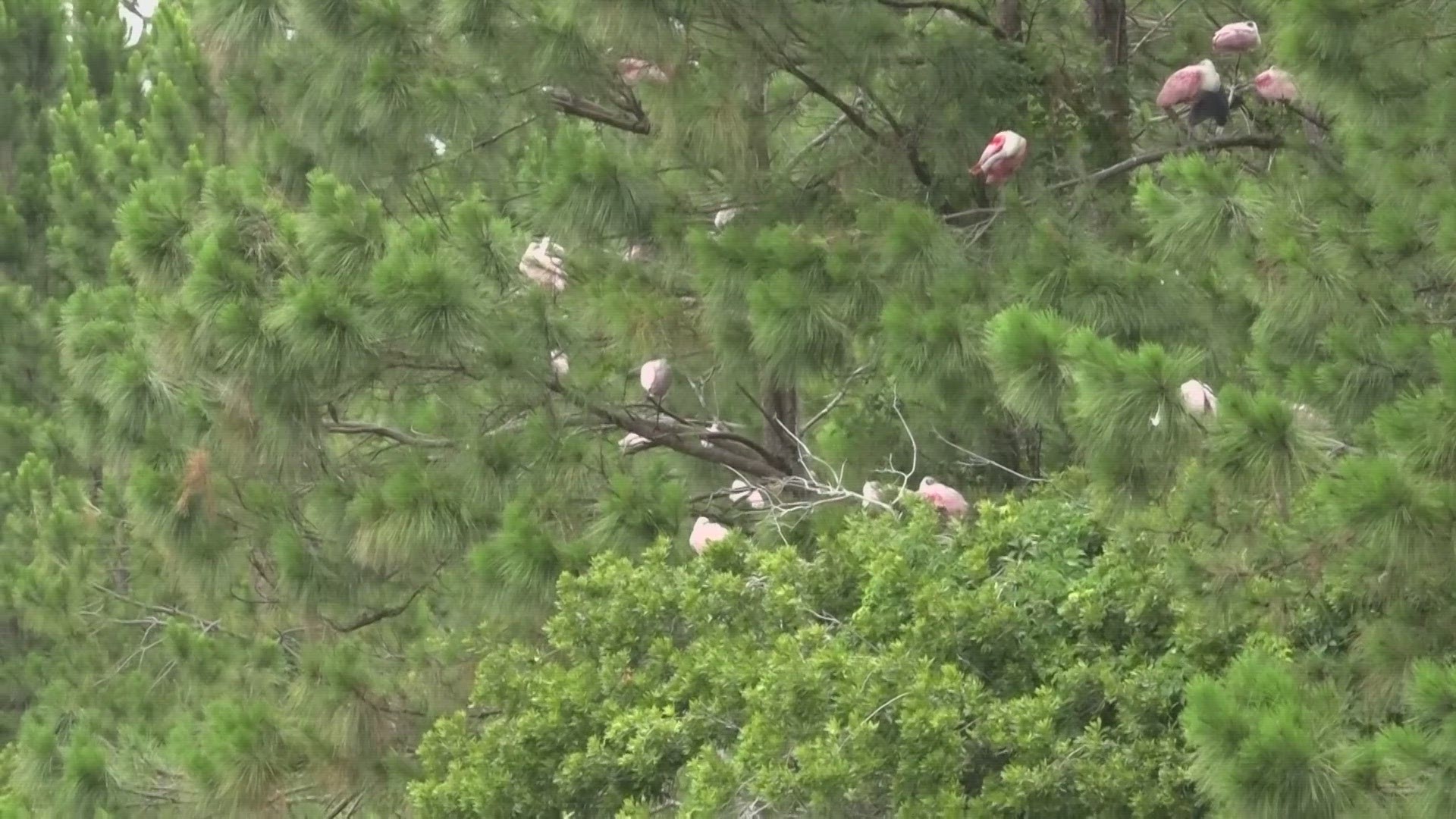ST. AUGUSTINE, Fla. — Last May, Vicki and Bill Payne got to work, trying to come up with a way to preserve a piece of natural land with hundreds of birds on it.
It was slated to be turned into a neighborhood.
Now, after eight months of hard work and persistence, the looks like the land – and its bird – are much closer to being saved.
From the Paynes' backyard in the Madeira neighborhood, acres of tree-filled land has become a rookery for various kinds of birds, including roseate spoonbills and wood storks. Both of them are threatened species.
However, the developer of the neighborhood had plans to expand and build homes on that land.
The Paynes had never maneuvered through the government process to try to preserve land, but they contacted government agencies, environmental groups, and local officials. They rallied their neighbors, and they also spoke with the developer/landowner of the neighborhood.
"We’ve gone a long way in a very short time," Vicki Payne told First Coast News Wednesday.
The North Florida Land Trust, which works to preserve land, has teamed up with the Paynes to guide them through the red tape. And now, they plan to ask the state to buy not just the original three acres the Paynes wanted saved, but 50 acres along the Intracoastal Waterway, just a few miles north of downtown St. Augustine.
The Paynes and their neighbor Paul Hamill told First Coast News the developer is considering selling 30 acres of his land, which would be equivalent to dozens of lots for homes.
The other 20 acres is from other private landowners as well as from the airport in St. Augustine, who according to the Paynes, are also considering selling to the state for preservation.
The application to the state is due by mid February.
Parts of the Madeira neighborhood is still under construction.
North Florida Land Trust President Allison Defoor told First Coast News that one of the key questions the stat will have is, "Will the birds stay or will they go? And that’s a fundamental question. Because if you’re going to be asking the state to put money in, they’re going to want to see more than just a neighborhood impact."
Defoor believes the land has a good chance of being preserved, but time will tell.
Payne reminds herself why she started this grass roots effort.
"I could not live with myself letting all of that be destroyed if I didn’t try to preserve it."
If you would like to reach the neighborhood effort about the project, contact: savethespoonbills@gmail.com.

